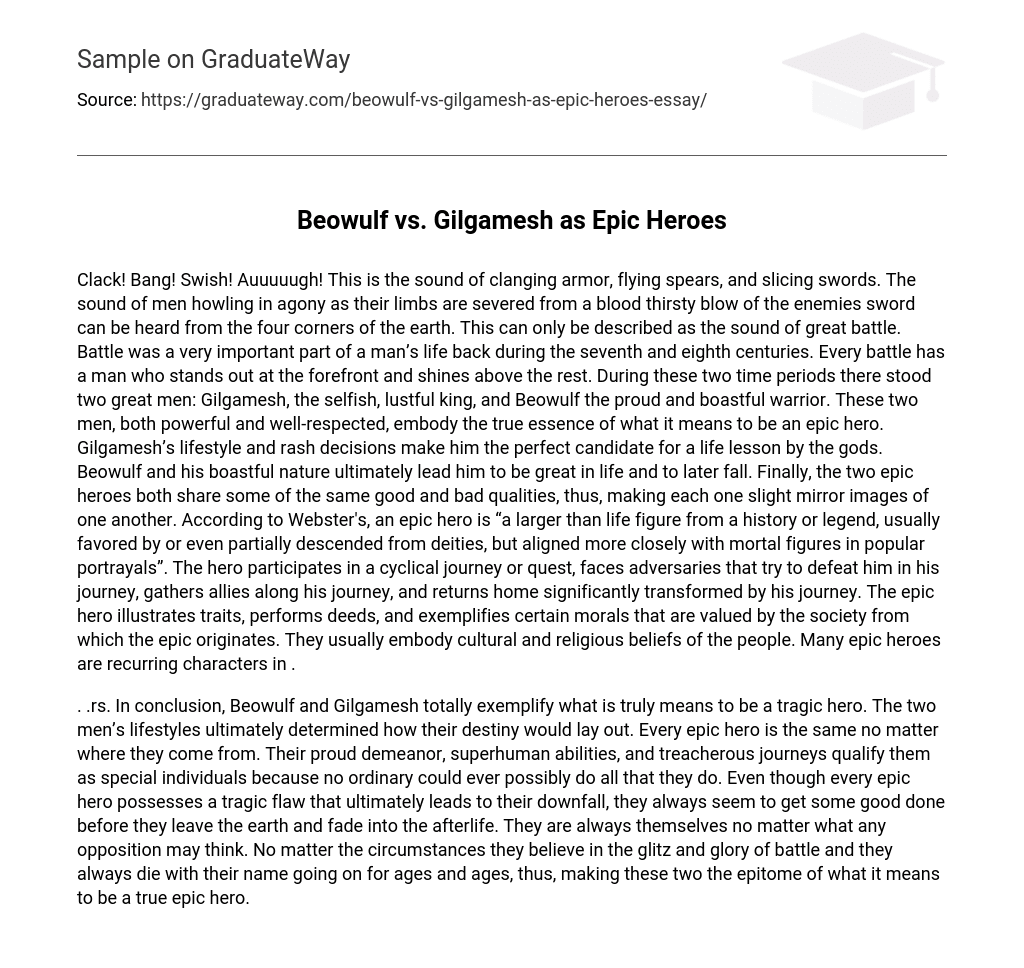Clack!Bang!Swish!Auuuuugh! This tumult symbolizes the chaos of battle, with clashing armor, soaring spears, and slashing swords. The agonized cries of men who have lost limbs to their ruthless enemies resonate throughout the world. This symphony is solely attributed to the monumental battles that occurred in the seventh and eighth centuries, which held immense significance in a man’s life during this era.
In every battle, an exceptional figure arises who surpasses all others. Two extraordinary individuals stood out during these periods: Gilgamesh, the self-centered and lustful king; and Beowulf, the proud and boastful warrior. Both Gilgamesh and Beowulf exemplify the true essence of an epic hero.
Gilgamesh’s impulsive choices and indulgent lifestyle make him a suitable candidate for receiving guidance from divine beings. Similarly, Beowulf’s inclination to brag ultimately leads to his greatness in life as well as his downfall. These two epic heroes possess both positive and negative qualities, reflecting each other to some extent.
According to Webster’s dictionary, an epic hero is a larger-than-life figure from history or legend who is often favored by or partially descended from gods but is more closely associated with mortal figures in popular depictions. The hero embarks on a cyclical journey or quest, facing adversaries trying to hinder him while also gathering allies who aid him on his expedition.After their adventures, the hero eventually returns home completely transformed. Epic heroes can be found in different societies and have esteemed qualities, achieve extraordinary accomplishments, and exemplify important morals. Furthermore, these heroes often represent the cultural and religious beliefs of their people. Additionally, many of these epic heroes frequently appear as characters in various stories.
In conclusion, Beowulf and Gilgamesh represent the essence of being a tragic hero. Their personalities and extraordinary abilities determine their fate. Epic heroes, regardless of their origins, share similar characteristics. They possess a proud demeanor, possess superhuman abilities, and embark on perilous journeys, distinguishing them as exceptional individuals. Despite their tragic flaws leading to their downfall, they manage to accomplish significant feats before departing from the mortal realm. They stay true to themselves despite opposition. Regardless of the circumstances, they embrace the glory and allure of battle, leaving behind a lasting legacy that spans through ages. Hence, these two individuals epitomize the true essence of being an epic hero.





